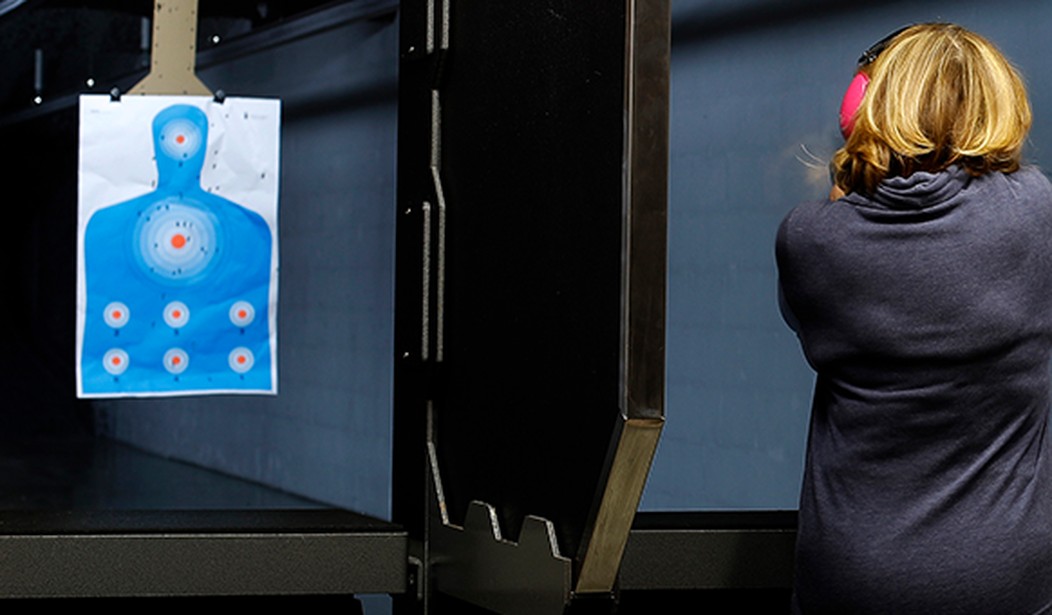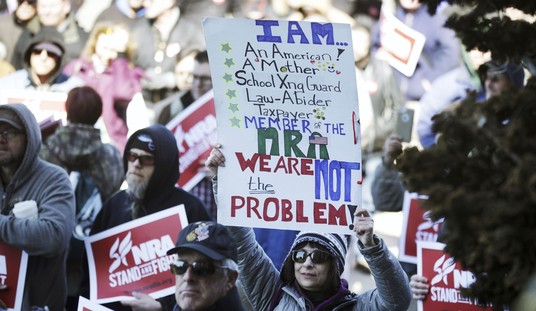I’m not always successful, but I generally try to keep my mouth shut about the sorry state of politics when writing here at Bearing Arms. After all, you can find Second Amendment supporters across the political spectrum, and I firmly believe that our right to keep and bear arms should be a non-partisan issue. I’m not blind to the fact, however, that the vast majority of Democrats embrace more restrictions on our Second Amendment rights, while Republicans are generally more favorable to protecting and securing those rights.
Generally, but not always. Take the self-proclaimed true conservatives over at The Bulwark, where author Tim Miller has weighed in with a piece about how and why he’s embraced the gun control ideology over the past decade. Honestly, it sounds like Miller was never really a big fan of the Second Amendment in the first place, but he went along to get along until the shootings at Sandy Hook Elementary in December of 2012.
As I understand it, there was a time when gun ownership and gun safety were paired with a pride in the craft. Maybe that was only in the movies and lost cause propaganda; I don’t know. But it is a concept I can appreciate. I recognize the sincerity of those who speak with a “do you want to have a catch” wistfulness when discussing shooting with their parents or grandparents.
But all of this is within the context of seeing guns as a right of passage, a privilege, and at times a necessary danger. That’s a frame that makes sense to me.
Another way of putting it is, to borrow a phrase, that guns should be safe, legal, and rare.
But these days American “gun culture”—or put more precisely, the kinkification of deadly hand-penises—has spiraled out of control. From kids in our cities who are getting killed pretending to be hardcore, to the “hunters” collecting hand cannons, to the lonely boys importing their first-person-shooter video games to real life, to a member of Congress using a rifle cross for her backdrop like she’s fucking American ISIS.
It’s way, way too much.
Mass shootings, suicides, urban bloodshed, police violence—they all lead back to this fundamental issue.
The fundamental issue that Miller’s talking about is, of course, gun ownership itself. And while Miller may be new to publicly wishing for more gun control laws, he’s got the verbiage of the anti-gun activist down pat.
Compare guns to genitals? Check.
Comparing gun owners to terrorists? Check.
Wistfully pining away for the imagined halcyon days of responsible gun ownership? Check.
Constructing straw man arguments? Check.
Every proposal to try to rationalize gun laws fails one of the (many) litmus tests that have been set up by the gun fetishists.
Want background checks at gun shows?
Well it’s ackshually only small-time unlicensed gun proprietors who don’t already do background checks.
Let’s make them have background checks, too, then?
Okay, but what about inheritances, gifts, and the temporary borrowing of guns among family and friends
Fine. Let’s limit magazine capacities then?
There are so few shootings where limiting magazine capacities would make a difference. And frankly, most of the gun deaths in this country are suicides.
But maybe we could at least curb some of the big mass shootings. Wouldn’t that in itself be good?
Most of these shooters aren’t following the law when they acquire their weapon anyway, and making them reload one more time isn’t going to make a material difference on the lives lost.
Well let’s go back to the assault rifle ban then?
Can you even define an assault rifle? It’s a meaningless term. Do you know the difference between a suppressor and a silencer? I bet you don’t know AR stands for ARMALITE, dingus.
Mass shooters do seem to like AR-15s though, no?
Millions of law-abiding varmint hunters use them too. And you never know when the gangs might hunt me down in my manse and I’ll need it for safety.
Just like long-time gun control advocates, Miller believes in restricting our right to keep and bear arms in almost religious terms. He takes it on faith that things like a ban on the most commonly-sold rifle in the country, or banning more than 100-million ammunition magazines, or requiring background checks on all gun transfers, will actually have an impact on the individuals who are responsible for the acts of violence that we all deplore.
Miller says absolutely nothing about the soft-on-crime approach taken by big city prosecutors like Larry Krasner in Philadelphia, or the failure of California’s restrictive gun control laws in preventing mass shootings like the one that took place in San Jose on Wednesday. Nope, he’s utterly convinced that the real problem lies with “gun culture,” an amorphous term that Miller can’t or won’t bother to define.
What “gun culture” is he talking about exactly? The culture of the 20-million or so Americans who posses a concealed carry license? The culture of the nation’s millions of hunters? The culture of gun collectors? The culture of competitive shooters? The culture of gang members? The culture of artists who have songs, movies, and television shows that glorify and idealize violent criminals? Each of those cultures exist, but there’s not a lot of overlap between some of those groups.
More importantly, none of those cultures are going away; not even the culture of criminality or the pop culture that normalizes drive-by shootings and violent retribution for perceived insults. There’s too much money to be made for the entertainment industry to decide that promoting violent crime should be left to others, and there are far too many legal gun owners for responsible gun culture to wither on the vine as Miller would like to see.
Just like his newfound friends in the gun control movement, Miller offers up unrealistic solutions to a serious problem; if only we could make it harder (or at least socially unacceptable) to legally own a firearm, then violent criminals would be unable to get access to guns and would presumably turn in the ones they currently own. Never mind the fact that it’s never worked out that way in the real world, where violent crime actually increased after Washington, D.C. and Chicago passed their bans on handguns in the late 1970s and early 1980s. Tim has faith that next time it’ll be different.









